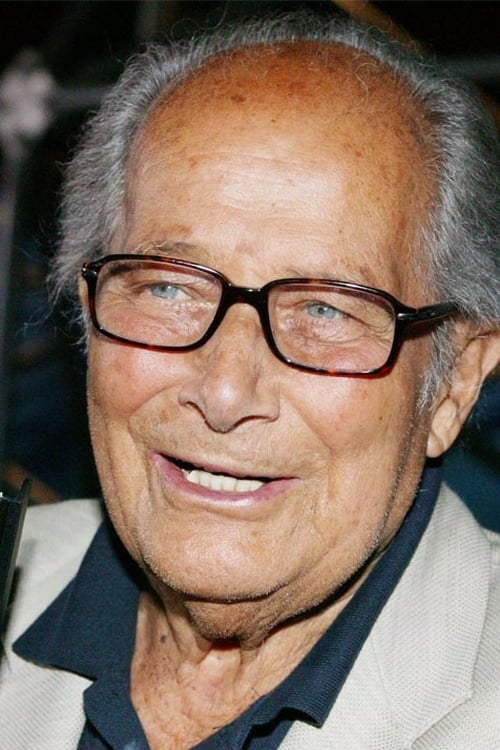
Gillo Pontecorvo
Nacimiento : 1919-11-19, Pisa, Italy
Muerte : 2006-10-12
Historia
Gillo Pontecorvo, born November 19, 1919 in Pisa and died October 12, 2006 in Rome, is an Italian filmmaker. Of Italian Jewish origin, Gillou Pontecorvo is the brother of Bruno Pontecorvo, a nuclear physicist working for the USSR, and Guido Pontecorvo, an Italian-British geneticist, as well as the grandson of the Jewish industrialist Pellegrino Pontecorvo. He has three sons: Marco (cinematographer and director), Simone (painter) and Ludovico (physicist).
A chemist by training, he quickly turned to journalism and became correspondent in Paris for several Italian publications. In 1941, he joined the Italian Communist Party (PCI), and participated in anti-fascist activities in northern Italy. After the Soviet repression of the Budapest uprising in 1956, he broke with the PCI, while continuing to claim Marxism. He started in cinema after the Second World War as assistant to Yves Allégret1 and Mario Monicelli in particular. From 1953, he produced his first documentary essays (Giovanna, MM, 1956). In 1956, he contributed to an episode of Die Windrose, supervised by Alberto Cavalcanti.
The following year, he directed his first feature film, A Called Squarcio (La grande strada azzurra, produced by Maleno Malenotti, based on a novel by Franco Solinas). Then he describes the concentration camp world in the film Kapò (1960), the story of a Jewish woman who becomes an auxiliary of the Nazis. The film was nominated for an Oscar for best foreign language film in 1961. It gave rise to a famous controversy over the "Kapò tracking shot", which Jacques Rivette had deemed unworthy in an article in Cahiers du cinéma entitled "De l' abjection.” In 1966, he directed his most important film, The Battle of Algiers (La Battaglia di Algeri), a reconstruction of the police action of the French army during the Battle of Algiers which was a fundamental episode of the war. from Algeria. This film was awarded the Golden Lion at the Venice Festival, but remained banned in France for a long time and its exploitation caused a lot of uproar linked to the scenes of torture committed by the French army. In Queimada (1969), dominated by the interpretation of Marlon Brando, he once again attacks colonialism, with an evocation of the Haitian revolution at the beginning of the 19th century. Faced with the commercial failure of Queimada, Pontecorvo stopped making films. He still directed a secondary film, Operation Ogre (Ogro, 1979), on the assassination of Luis Carrero Blanco by ETA during Francoism, and collaborated on the film L'addio a Enrico Berlinguer (1984).
In 1992, he was appointed director of the Venice Film Festival. In 1993, during the 50th edition of the Mostra, Pontecorvo presented Steven Spielberg with an honorary Golden Lion, at the time of the release of Schindler's List. He died on October 12, 2006, at the age of 86, in Rome, Italy.
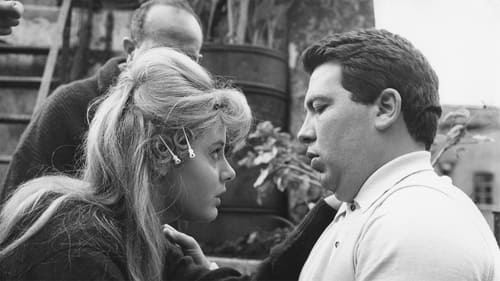
Self
Documental entorno a la figura del prestigioso director italiano Elio Petri, que indaga en su vida y obra. Intervienen directores como por ejemplo Robert Altman o Bernardo Bertolucci hablando sobre él, así como compañeros suyos de trabajo.

Self
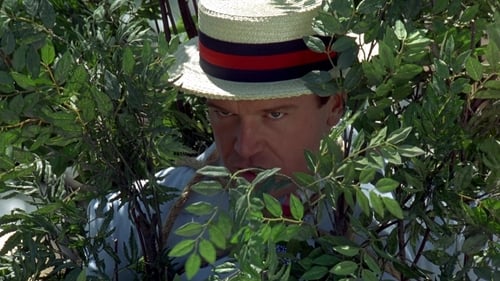
Talk show guest
La familia Stupid es valiente, atrevida, vive de una forma muy excitante, pero también tiene una extraordinaria habilidad para meterse en problemas. Cada semana, como todos sus vecinos, Stanley Stupid examina su basura y siempre descubre que ha sido robada. Un día Stanley decide resolver este desconcertante crimen.

Director
Gillo Pontecorvo, who directed the insurrectionary classic The Battle of Algiers in 1966, returns to the city of Algiers to view the progress Algeria has made - for better or worse - since the departure of the French colonialist forces thirty years earlier.

Himself
Gillo Pontecorvo, who directed the insurrectionary classic The Battle of Algiers in 1966, returns to the city of Algiers to view the progress Algeria has made - for better or worse - since the departure of the French colonialist forces thirty years earlier.

Self

Director
Promotional omnibus film, made for the 1990 FIFA World Cup in Italy, featuring portraits of 12 Italian cities.

Director
A film of Enrico Berlinguer's funeral in Rome, briefly tracing his career as leader of the Italian Communist Party.
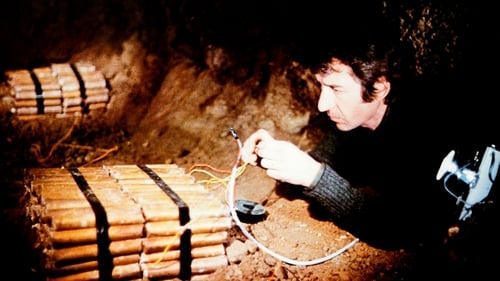
Screenplay
España, 1973. El dictador Francisco Franco ha gobernado el país desde 1939 con puño de hierro; pero ahora es un hombre muy viejo y enfermo. El futuro del debilitado régimen está en peligro. El almirante Carrero Blanco es su sucesor natural. La banda terrorista vasca ETA decide que debe morir para evitar que la dictadura continúe.

Director
España, 1973. El dictador Francisco Franco ha gobernado el país desde 1939 con puño de hierro; pero ahora es un hombre muy viejo y enfermo. El futuro del debilitado régimen está en peligro. El almirante Carrero Blanco es su sucesor natural. La banda terrorista vasca ETA decide que debe morir para evitar que la dictadura continúe.
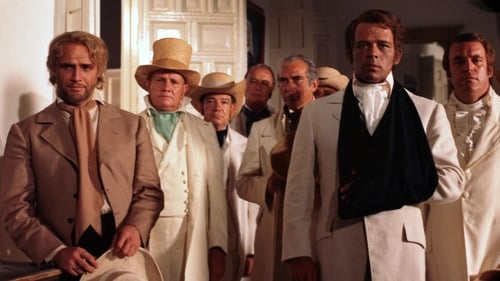
Director
William Walker, un agente inglés, es enviado a Queimada, isla imaginaria del Caribe, para fomentar una revuelta contra los portugueses. Sin embargo, el objetivo de esta operación no es apoyar la independencia de los nativos, sino que Inglaterra sustituya a Portugal como potencia colonialista.
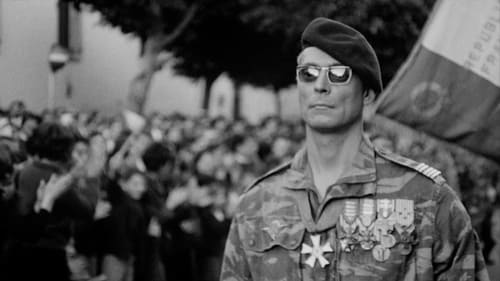
Original Music Composer
Relato sobre los orígenes, el desarrollo y el fin del enfrentamiento entre el Frente de Liberación Nacional (FLN) de Argelia y las autoridades coloniales francesas. El protagonista, Ali La Pointe, es uno de los más destacados activistas de la Casbah de Árgel.

Writer
Relato sobre los orígenes, el desarrollo y el fin del enfrentamiento entre el Frente de Liberación Nacional (FLN) de Argelia y las autoridades coloniales francesas. El protagonista, Ali La Pointe, es uno de los más destacados activistas de la Casbah de Árgel.

Director
Relato sobre los orígenes, el desarrollo y el fin del enfrentamiento entre el Frente de Liberación Nacional (FLN) de Argelia y las autoridades coloniales francesas. El protagonista, Ali La Pointe, es uno de los más destacados activistas de la Casbah de Árgel.

Screenplay
Decidida a sobrevivir a cualquier precio, Edith, una joven judía deportada a un campo de exterminio, logra sobrevivir aceptando el papel de kapo, un prisionero privilegiado cuya misión es vigilar despiadadamente a otros prisioneros.

Director
Decidida a sobrevivir a cualquier precio, Edith, una joven judía deportada a un campo de exterminio, logra sobrevivir aceptando el papel de kapo, un prisionero privilegiado cuya misión es vigilar despiadadamente a otros prisioneros.
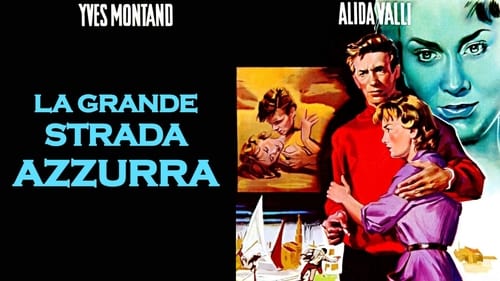
Screenplay
Squarcio, un pobre pescador italiano (Yves Montand) trata de sacar adelante a su familia practicando la pesca con dinamita - lanzando granadas al agua para capturar el marisco-. Desgraciadamente, llega al pueblo un nuevo jefe de la Guardia Costera, que está decidido a acabar con esa ilegal forma de pesca.

(uncredited)
Squarcio, un pobre pescador italiano (Yves Montand) trata de sacar adelante a su familia practicando la pesca con dinamita - lanzando granadas al agua para capturar el marisco-. Desgraciadamente, llega al pueblo un nuevo jefe de la Guardia Costera, que está decidido a acabar con esa ilegal forma de pesca.

Director
Squarcio, un pobre pescador italiano (Yves Montand) trata de sacar adelante a su familia practicando la pesca con dinamita - lanzando granadas al agua para capturar el marisco-. Desgraciadamente, llega al pueblo un nuevo jefe de la Guardia Costera, que está decidido a acabar con esa ilegal forma de pesca.

Director
An international anthology about the struggles of female workers around the world.
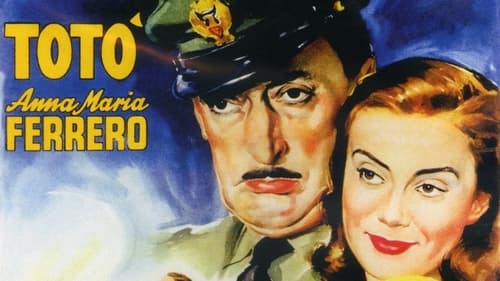
First Assistant Director
Totò da vida a Antonio Caccavallo, un voluntarioso agente de policía viudo, que vive con su padre y su hijo, y que sueña con un ascenso que suponga un aumento de sueldo. Pero un error en una redada le lleva a detener a la joven Carolina, que para más inri realiza una tentativa de suicidio en la comisaría. Para arreglar el desaguisado, el comisario encomienda a Caccavallo devolver a la joven a su pueblo, a algún familiar que pueda hacerse cargo de ella. La misión llevará aparejadas divertidas peripecias, que ayudarán a conocerse a la "extraña pareja".

Writer
This short is set in the early 1950s in a small textile factory in central Italy (Prato). Giovanna and her fellow female workers decide to enact a protest against the direction of the factory's dismissal plan, by occupying the factory and continuing to work until the proprietor cancels the dismissals. None of these women can really afford to lose their jobs, as it is the only income in the family. All workers receive moral and material support from their families, apart from Giovanna, who bravely endures her husband's disapproval. Almost all the women hold out for thirty-five days in spite of the proprietor's attempts to break their resistance. At first he blocks the road to the factory, then he cuts off electric power to increase their isolation; finally, he tries to convince them to accept the dismissal of at least a smaller number of them. But the women overcome these obstacles, determined to resist...

Director
This short is set in the early 1950s in a small textile factory in central Italy (Prato). Giovanna and her fellow female workers decide to enact a protest against the direction of the factory's dismissal plan, by occupying the factory and continuing to work until the proprietor cancels the dismissals. None of these women can really afford to lose their jobs, as it is the only income in the family. All workers receive moral and material support from their families, apart from Giovanna, who bravely endures her husband's disapproval. Almost all the women hold out for thirty-five days in spite of the proprietor's attempts to break their resistance. At first he blocks the road to the factory, then he cuts off electric power to increase their isolation; finally, he tries to convince them to accept the dismissal of at least a smaller number of them. But the women overcome these obstacles, determined to resist...
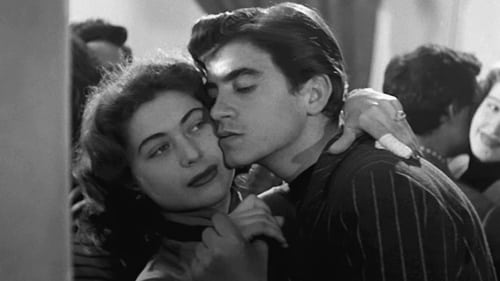
First Assistant Director
Seis episodios separados que exploran temas de amor, sexo y romance en la capital italiana. "Paid Love" ofrece un vistazo a la prostitución; "Intento de suicidio" presenta a posibles suicidas discutiendo su desesperación; "Paradise for Three Hours" representa una velada en un salón de baile provincial; "Marriage Agency" sigue a un reportero de investigación que se hace pasar por futuro esposo; "Historia de Caterina" cuenta la historia de una joven madre soltera obligada a abandonar a su hijo; y "Italians Stare" cataloga las técnicas de los hombres italianos para observar a las chicas.
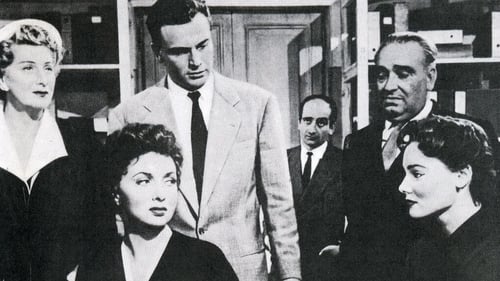
First Assistant Director
Un empresario contrata a una agencia de detectives para espiar a su mujer con la esperanza de que la descubran en una traición para poder divorciarse sin pasarla pensión alguna, y poder así casarse con una joven de la que está enamorado. Esta situación desencadenará un dramático chantaje.
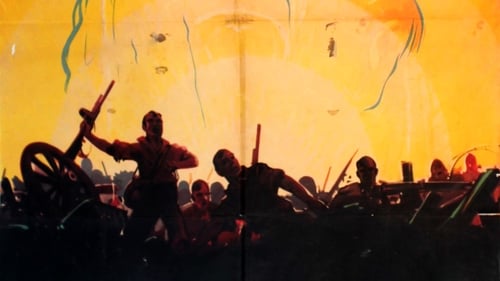
Pietro
A neorealist tribute to the Italian resistance fighters of World War II.

